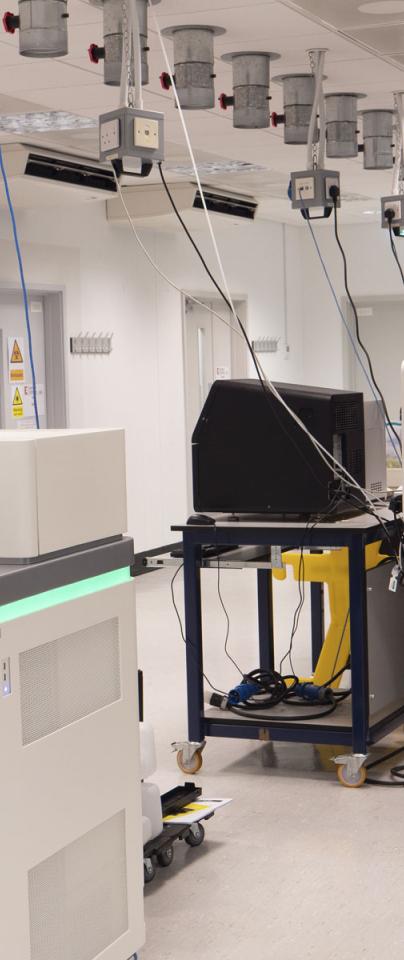My obscure route into science: Neil Shearer
Neil Shearer went from a pig farm to potato picking and gravedigging before getting a PhD. It’s not always a straightforward route into science!
It’s time to return to our popular “obscure routes into science” series, this time putting the limelight on our LIMS Manager Dr Neil Shearer, who did a staggeringly diverse range of jobs before landing here at EI, from potato picking to gravedigging!
After a pretty traumatic time at school I left at 16 with no real direction, which wasn’t helped by the knowledge that, due to a congenital eye condition, I’d never be able to drive a car. I had a few ideas, such as becoming an RAF engineer or a farm manager but these required good eyesight or the ability to drive.
I started A-levels at college but, to my parents dismay, I quit after one term and went to work on the pig farm I’d been working on at weekends and school holidays. I loved working outside and the variety that the job gave but couldn’t get rid of the smell, which wasn’t great for my love life.

Over the next 8 years I was employed variously as a mechanic, post office clerk, butcher, roof tile manufacturer, grave digger, potato picker and cleaner (not all at the same time).

After going through a particularly challenging period I realised that I needed to make some big changes so signed up for an Access course, with thoughts of becoming a physiotherapist.
I discovered that despite what I had thought at school, biology is really interesting and I ended up moving to Norwich to study for a BSc in microbiology. That was followed by a PhD in bacterial genetics and then 15 years in bacterial research. I Joined EI in 2016 as a project manager with the DNA/RNA sequencing service before starting my current job in 2018.

On the Access course I learnt about DNA and genetics for the first time and was fascinated by the idea that genes could be switched on and off in different cell types and at different times.
I remember asking my teachers at the time how this could happen and they said “go and find out”.
This was back in 1992, before the internet, so I couldn't just Google it. I embarked on a science career pretty much to answer that question.
I now have a good idea of how gene regulation is achieved but still get excited to learn of new mechanisms.
Working in research can sometimes be very frustrating but at other times it can be incredibly rewarding. The highs include obtaining interesting results, having papers accepted for publication and helping colleagues achieve their goals. With my current job I still get to work with science and scientists but without the frustrations of failed experiments.
One of the best things about working in science is that you get to meet and work with brilliant and interesting people from all over the world. For me the biggest difference between my previous life and my scientific career is that through science I have really been able to challenge and stretch myself.

One of the best things about working in science is that you get to meet and work with brilliant and interesting people from all over the world.

It is exciting to work with such high-tech equipment and techniques but the best thing about working in Genomics Pipelines is the brilliant team of people I get to work with.
They each have their own skill set and knowledge, so it has been a great place to learn and develop my own skills. I am fortunate in my role in that I also get to work with academics and support staff so am constantly learning and developing new interests.


It is exciting to work with such high-tech equipment and techniques but the best thing about working in Genomics Pipelines is the brilliant team of people I get to work with.

If you’re interested in biology and the way things work then a life science career could be for you. Spend some time finding out about the range of careers available to see what might suit you best.

A good start would be to attend EI’s open day on 21st May and talk to some of our staff.

I nearly scored a goal once in the JIC (John Innes Centre) 5-a-side competition. I tried to volley the ball from the side but just fell in a heap and missed the goal.
My 3 year old son was watching and after that every time we played football he threw himself on the ground. I might be rubbish at football but I’ve got more hair than my name sake.
